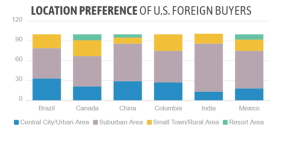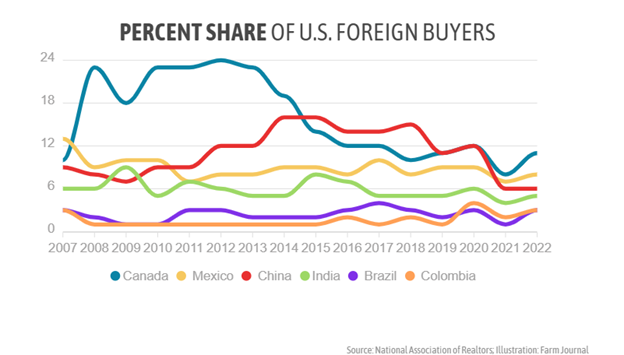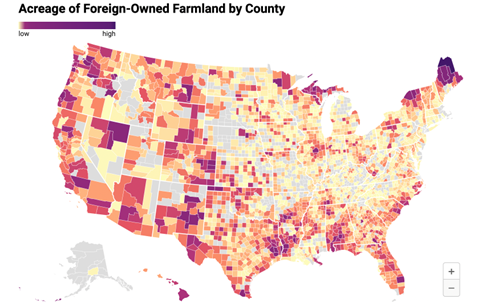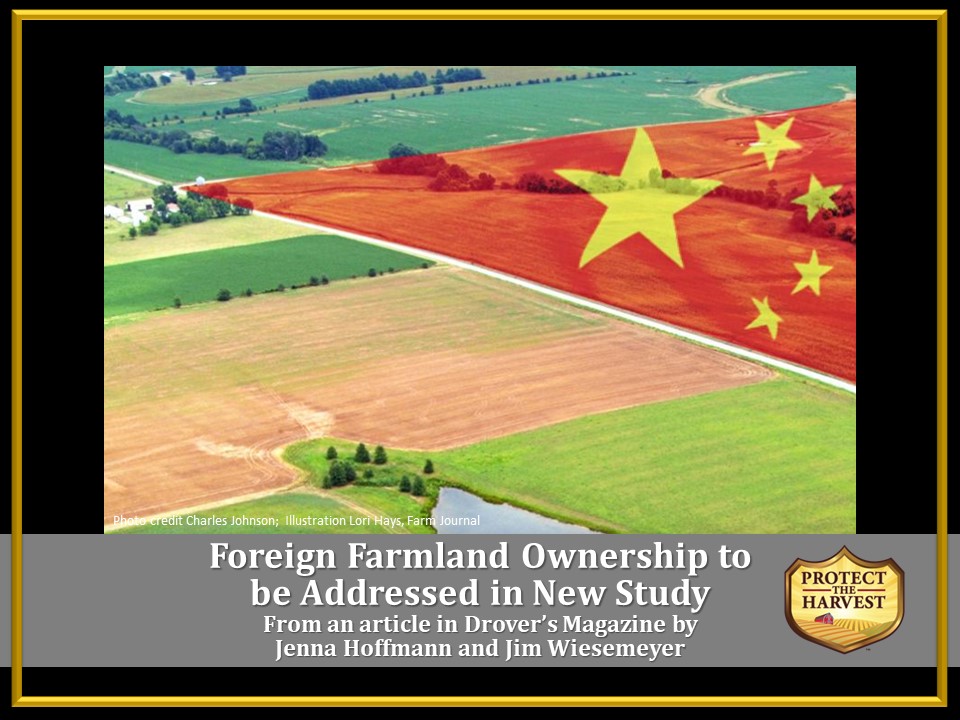By JENNA HOFFMAN AND JIM WIESEMEYER, Drover’s Magazine
October 3, 2022
House Ag Committee ranking member G.T. Thompson (R-Pa.) and Rep. James Comer (R-Ky.), Republican leader on the House Committee on Oversight and Reform, in a letter to General Accountability Office (GAO) Comptroller General Gene Dodaro, asked the GAO to conduct a study addressing the following:
1. What is known about the extent of and trends in foreign investment in U.S. agricultural land (e.g., by country of investor, by state, by type of land)?
2. How does the Farm Service Agency collect data ona foreign investment in U.S. agricultural land and what steps are taken to ensure data reliability? How have USDA’s data collection methods changed since AFIDA was enacted in 1978?
3. What procedures are in place to ensure proper disclosure of acquired agricultural land by a foreign person or entity and does USDA have a process to ensure accurate disclosure of the transfer or sale of such lands?
4. Do the current standards for filing under AFIDA ensure that land acquired by a foreign person or entity through a U.S. chartered company or corporation is accurately disclosed as a foreign investment in agricultural land?
5. How, if at all, does the U.S. government use the data on foreign investment in U.S. agricultural land to ensure the land is used for its intended purpose and does not pose a threat to national security?
6. What improvements or policy options, including regarding national security, could be made to strengthen reporting of foreign investment in agricultural land?
7. Are there other Departments or Agencies that USDA is or should be partnering with to ensure accurate disclosure of foreign owned agricultural land?
According to Rep. Thompson, foreign ownership and investment in U.S. ag land has “nearly doubled” in the past decade.


“This growing trend has elevated concerns regarding national security in a time of uncertainty that is already compounded by challenges to our supply chain infrastructure, high input costs for farmers, and geopolitical pressures. It is critical for Congress to have a thorough understanding of foreign investment in our nation’s agricultural land,” he said.
The study was put into motion to ensure an “affordable, reliable” food supply is secured for the nation’s well-being, according to Rep. Comer.
“We are calling on the Government Accountability Office to report on the scope of this threat to our food supply to inform Congress how we can best protect the security of the American people. Americans need transparency about the federal government’s efforts to address this growing problem,” says Comer.
What We Know
Sen. Chuck Grassley (R-Iowa) has noted that foreign ownership of U.S. land increased by 2.4 million farm acres in 2020. If this trend continues, it will contribute to unfair competition for young and beginning farmers who seek to buy land.

Acreage of foreign-owned cropland (including forests and pastures) by county. (USDA data mapped by The Daily Yonder for the Midwest Center for Investigative Reporting.)
Sens. Tammy Baldwin (D-Wis.) and Grassley introduced the “Farmland Security Act,” to require more disclosure by foreign entities about the purchase of U.S. farmland. The bill would require USDA to increase reporting on foreign investments in the U.S., “including the impact foreign ownership has on family farms, rural communities and the domestic food supply.”
USDA also would be required to develop an interactive public database with real-time updates on disclosures of foreign land purchases.
China’s Role
USDA’s latest data shows China owns over 191,000 acres of U.S. lands.
A Chinese company, Fufeng Group, recently acquired 300 acres in North Dakota for $2.6 million. According to the company, it intends to establish a milling plant.
Various government officials, including North Dakota’s Governor Doug Burgum, have raised concerns over the sale.
“We ask that this review process be completed with the utmost urgency to aid Grand Forks officials in their decision-making process and provide clarity on whether this land purchase has national security implications,” Burgum wrote.
Eric Chutorash, Fufeng Group USA COO, claims the company has no Chinese government ownership and all workers in the plant will be Americans. He says he “cannot imagine” anyone in the facility would partake in espionage.
This isn’t the first time a question has been raised in China’s stake in the U.S.
The plug was pulled on a similar wind energy project in Del Rio, Texas, in April when state officials realized two key issues:
1. The land dedicated to the wind farm is miles from the Laughlin Air Force Base.
2. The Chinese company hired to carry out the job is owned by a former member of the Chinese military who has direct ties to China’s ruling communist party.
Some 14 states restrict or prohibit foreign ownership of farmland, though none outright forbid it, according to a memo last November by the Congressional Research Service.



